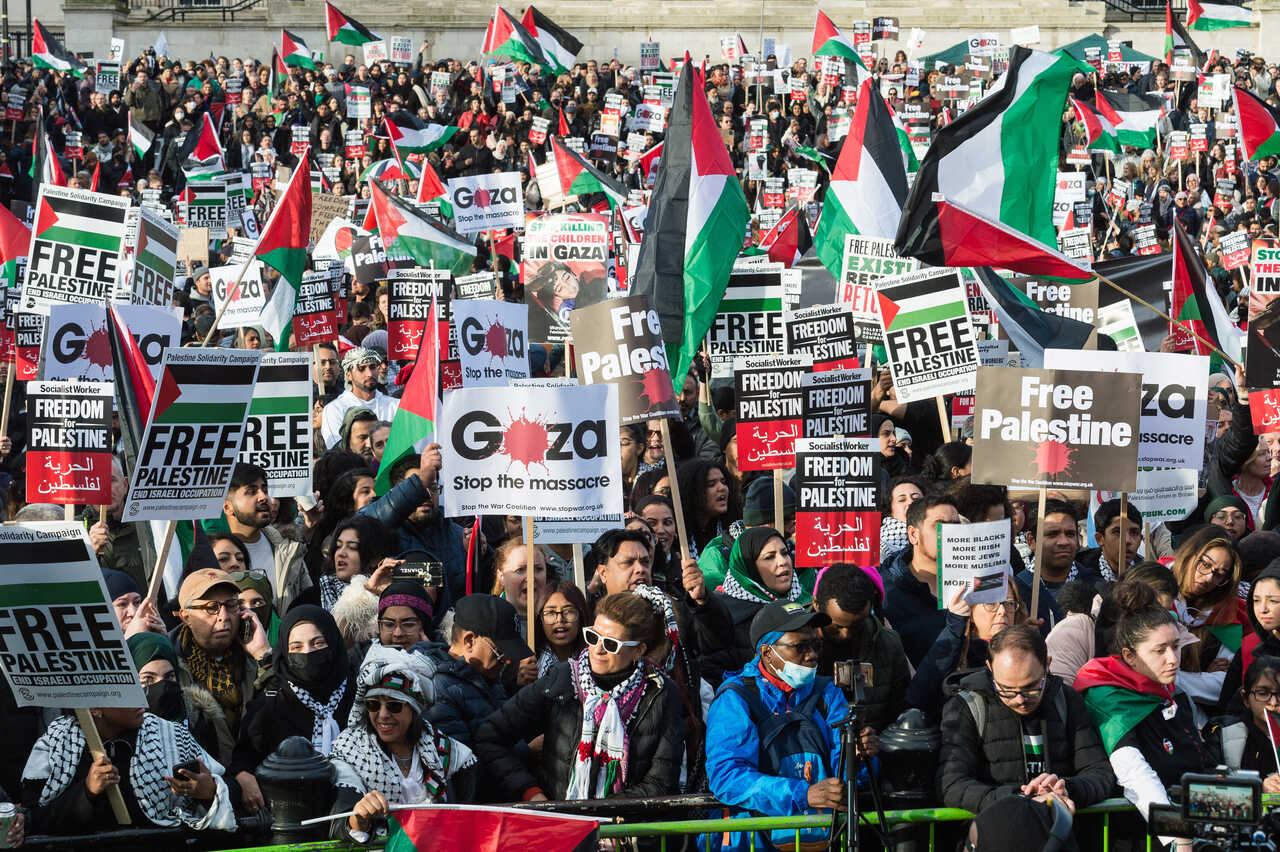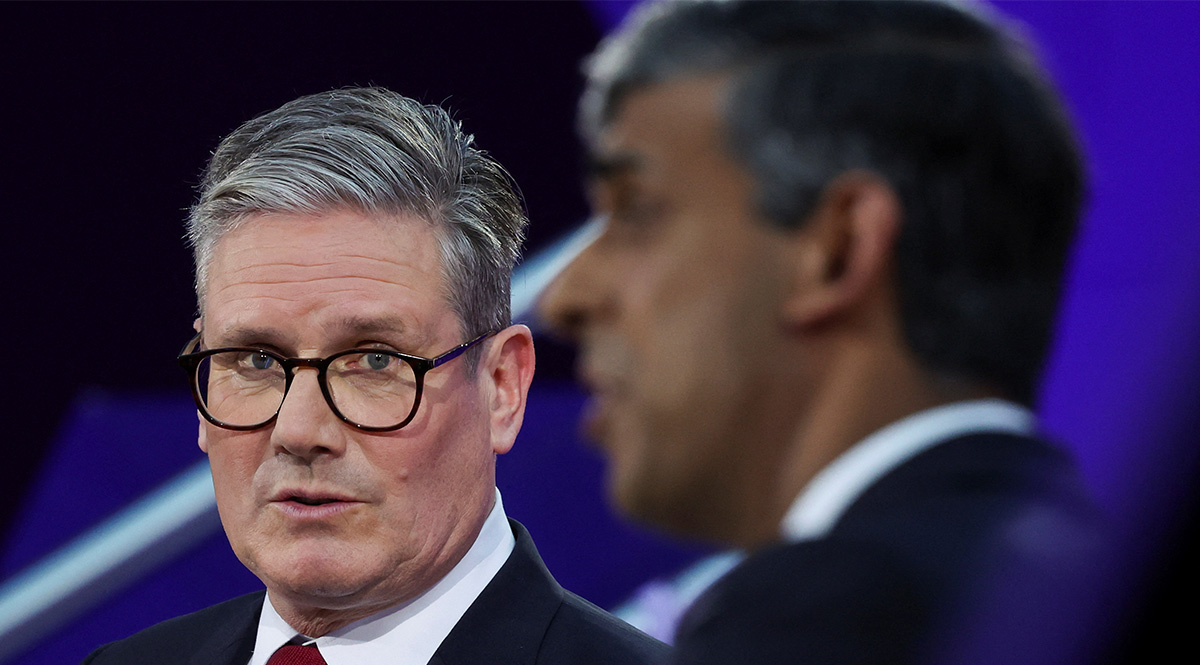Labour Notches Impressive Victory in UK General Election
.png) Chris Eades/The Sun / PA Images / Forum
Chris Eades/The Sun / PA Images / Forum
What were the results of the major parties in the election?
The result was generally in line with predictions. Labour received 9.73 million votes (33.8%) and won 412 seats (+211 compared to 2019), while the Tories had 6.83 million (23.7%) and held on to 121 seats (-251), respectively. The other opposition parties gained the following results, respectively: Reform UK, 4.1 million (14.26%, 5 seats, +5); Liberal Democrats, 3.5 million (12.20%, 72, +64); Greens, 1.94 million (6.75%, 4, +3); Scottish National Party, 724,000 (2.52%, 9, -39); Plaid Cymru, 194,000 (0.68%, 4, +2); Sinn Féin, 210,000 (0.73%, 7, no change); Democratic Unionists, 172,000 (0.6%, 5, -3); and independent candidates, 564,000 (2.0%, 6, +6). The turnout of 59.9% was relatively low compared, for example, to the 66.4 to 68.8% in the 2015, 2017, and 2019 General Elections and 72.2% in the 2016 Brexit referendum. Labour’s result is the most disproportionate win for a victorious party in terms of votes converted into seats in the history of British democracy and was achieved with fewer votes won than in the 2017 and 2019 House of Commons elections.
What does the election result mean for the stability of British democracy?
The Starmer government has secured close control of parliamentary processes, which is conducive to the efficient implementation of the party’s legislative agenda and will limit the influence of its radical factions (e.g., those calling for greatly increased welfare spending). However, electoral success was achieved thanks to the vagueness of the party manifesto, which will be a source of internal conflicts over its interpretation. Labour’s vulnerability to internal strife over the Palestinian-Israeli conflict will also be important, given the party’s reliance on the support of both British Jews and Muslims. In this context, the election of five independent MPs with pro-Palestinian/anti-Israeli views in traditional Labour constituencies with a large Muslim minority (including former Labour leader Jeremy Corbyn) is important. Importantly, Shadow Cabinet member Jonathan Ashworth (responsible for the Cabinet Office) lost his seat in the Leicester South constituency to one such independent.
What role did the Reform UK play in the campaign?
Nigel Farage’s movement achieved the best result for a non-parliamentary party since the 1980s. Not only did it bring its most recognisable activists into the House of Commons, but it came second in 98 constituencies (including dozens of Labour ones) and helped to unseat the Tories in 180 constituencies (by splitting their electorate). Reform UK has now gained the opportunity to promote on the parliamentary floor its main demands from the campaign, for example those related to restricting immigration to the UK, reviewing the green transition, and demands of deregulation at the expense of post-EU legislation. Reform UK will undertake to systematically undermine the Tories’ credibility as a small-c conservative party and to create an alternative for socially conservative Labour voters, as evidenced by the success of Lee Anderson in the formerly strongly Labour Ashfield constituency (a former miner, Labour activist and 2019 Conservative MP).
What is the composition of the new government?
Given the need to make the most of the government experience carried over 14 years in opposition from the previous Labour administrations in 1997-2010 (two-thirds of the party’s current MPs are newcomers), the Starmer cabinet essentially replicates the composition of his Shadow Cabinet. The new government includes a small number of people with prior ministerial experience, including Yvette Cooper, the new Home Secretary, Douglas Alexander, Minister of State at the Department for Business and Trade, or Baroness Jacqui Smith, who serves as Minister of State in the Department for Education. The role of Downing Street Chief of Staff has been taken on by former civil servant Sue Gray, while a former Tony Blair adviser, Pat McFadden, serves as Chancellor of the Duchy of Lancaster (i.e., minister for government coordination). The division of departments also reflects the balance of power between the factions. The left wing, trade unions, and ethnic minorities are represented, among others, by Deputy Prime Minister and Secretary of State for Levelling Up, Housing and Communities Angela Rayner and Foreign Secretary David Lammy,. The right-wing of the party is represented, among others, by Chancellor of the Exchequer Rachel Reeves, and Defence Secretary John Healey (an MP since 1997).
What do the election results mean for the EU and Poland?
During his first foreign visit (6-8 July), with stops in Germany, Poland, and Sweden, Lammy declared on behalf of the new government his desire to move closer to the European Union, but without undermining the essentials of the 2020 EU-UK Trade and Cooperation Agreement. This should translate into improved cooperation with the EU on contentious issues and foster its expansion to foreign and security policy. Academic and professional exchange programmes, which Labour is keen to conclude, could be an opportunity for young people. The Starmer government’s pro-Ukraine course also will continue. Labour pledges to increase funding for defence to 2.5% of GDP and to continue to contribute to protecting NATO’s Eastern Flank. During a briefing on 7 July with Polish Foreign Minister Radosław Sikorski, Lammy recalled that Poland and the UK have concluded several strategic arms contracts (including the construction of Miecznik-class multi-role frigates and the Narew air defence system), which are conducive to enhancing existing technological and industrial cooperation.





